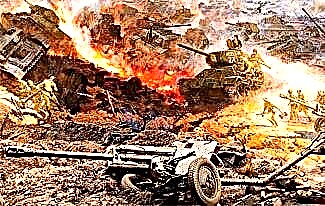What is inflation? We hear this term a lot in TV news bulletins as well as in everyday conversation. And yet, many people do not know the exact definition of this concept or simply confuse it with, in other words.
In this article we will tell you what is meant by inflation and what kind of threat it can pose to the state.

What does inflation mean
Inflation (lat. inflatio - bloating) - an increase in the general level of prices for goods and services for a long time. In the course of inflation, one and the same amount of money over time will be able to buy fewer goods and services than before.
In simple terms, inflation leads to a decrease in the purchasing power of banknotes, which have depreciated and lost some of their real value. For example, today a loaf of bread costs 20 rubles, after a month it costs 22 rubles, and in another month it costs 25 rubles.
As a result, prices have risen, while the purchasing power of money, on the contrary, has decreased. This process is called inflation. At the same time, inflation has nothing to do with a one-time rise in prices and at the same time does not mean an increase in all prices in the economy, since the cost of certain goods and services may remain unchanged or even decrease.
The inflation process is quite natural for a modern economy and is calculated using a percentage. Inflation can be caused by a variety of factors:
- issuance of additional banknotes to cover the state budget deficit;
- reduction in GDP with the remaining volume of the national currency in circulation;
- shortage of goods;
- monopoly;
- political or economic instability, etc.
In addition, the rapid arming of the state (militarization) can lead to inflation. That is, a lot of money is allocated from the state budget for the production or purchase of weapons, without providing the population with goods. As a result, citizens have money, but they do not need machine guns and tanks, on which budget funds were spent.
It is important to note that normal inflation is 3 to 5% per year. This indicator is typical for countries with developed economies. That is, despite inflation, wages and social benefits will gradually increase, which covers all the shortcomings.









